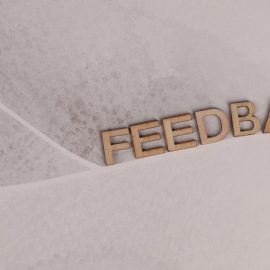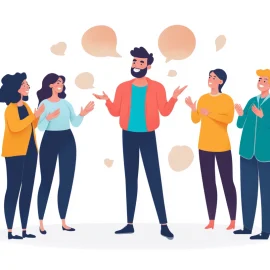

This article is an excerpt from the Shortform book guide to "Someday Is Today" by Matthew Dicks. Shortform has the world's best summaries and analyses of books you should be reading.
Like this article? Sign up for a free trial here.
Do you feel like you’re always juggling tasks? Do you focus only on what’s in your hand at the moment and leave important tasks up in the air?
To reach your full potential and accomplish extraordinary things, Matthew Dicks says you must learn how to make the most of your time. The first step is to stop wasting time on unnecessary tasks.
Read on for Dicks’s advice on how to organize tasks in a way that allows you to accomplish greater things.
How to Organize Tasks
Dicks recommends disregarding irrelevant tasks and focusing on things that are truly important to you—not to your boss, your friends, or any other outside entity. He explains that, when we don’t know how to organize tasks effectively, we waste time on irrelevant tasks. This is because we make decisions based on our current thoughts and feelings, which are largely influenced by our environments (like the people around us), not what we truly want or what’s best for us long term.
(Shortform note: In Essentialism, Greg McKeown also recommends eliminating nonessential tasks to make more time for things that are truly important to you—not someone else. However, his explanation for why people struggle to do this differs from Dicks’s. First, he attributes this struggle to the societal pressure to always say “yes”—saying “no” makes us feel like we’re breaking the rules. Further, he notes that many people have the flawed view that everything is important and that they’re obligated to do everything—in reality, most things are nonessential, and you can always choose what you do or don’t do.)
To avoid wasting time on tasks that feel important but are actually irrelevant, Dicks recommends only performing tasks that would matter to your future self. This will ensure you’re spending time on things that truly matter to you (not someone else) and benefit you in the long term. To enlarge your perspective ask yourself: Would the task at hand be important to your 100-year-old self? Would they want you to do it? Or, would they recommend that you spend that time doing something else?
For example, consider the task of repainting your house with your family. If your 100-year-old self values constructive family time, this is likely something they’d want you to do—you won’t have your family around forever, so make the most of time with them while you can and do something productive in the process. However, if your 100-year-old self values family leisure time over doing constructive tasks, they’d likely see the painting element of the plan as irrelevant and advise you to spend the time hiking (a leisure activity) with your family instead.
| Visualize Your Future Self to Guide Your Current Actions In Be Your Future Self Now, Benjamin Hardy suggests determining the importance of a task by imagining who you want to be in the future. In Hardy’s view, a task is only important if it helps you become your ideal, most successful future self. Before using your future self to guide your actions, Hardy recommends performing a visualization exercise to clearly identify who your future self is, what’s important to them, and what they’ve accomplished in life (their goals and achievements). This preliminary step is crucial because Hardy explains that your future self won’t be the same person that you currently are—they’ll be the better version of you. So to make accurate decisions that benefit your future self (and not just your current self), you must first get a clear idea of who they are and what they want. To visualize this person, Hardy first recommends picturing the happiest, most productive, and most successful future version of yourself (which could be your 100-year-old self, as Dicks recommends). Figure out what kind of life you want this future you to have and what will be important to them (their values), so you can use these elements to guide your current actions. Next, Hardy says to identify the big, life-changing goals that your future self has accomplished that led to success and happiness. These are the goals you should strive to meet going forward. For example, maybe your future self worked for a prestigious newspaper, made lots of money, and retired early so they could spend time with their family—these are the accomplishments that allowed them to live the life you envisioned. Identifying both the values and accomplishments of your future self will provide you with the clearest framework to guide your current actions and accurately judge what’s important to you and what’s irrelevant. For example, only considering your future self’s values might lead you to skip a work conference for a family vacation because your future self values family time. However, also considering your future self’s ideal life and accomplishments (such as making enough money to retire early) could make you realize that attending the conference advances your career so you can retire early and spend more family time in the long term. Therefore, attending it is the best choice. |

———End of Preview———
Like what you just read? Read the rest of the world's best book summary and analysis of Matthew Dicks's "Someday Is Today" at Shortform.
Here's what you'll find in our full Someday Is Today summary:
- Why most people delay taking action toward their dreams and goals
- Tips for accomplishing extraordinary things in life
- How to maximize your time, efficiency, productivity, and creative potential






